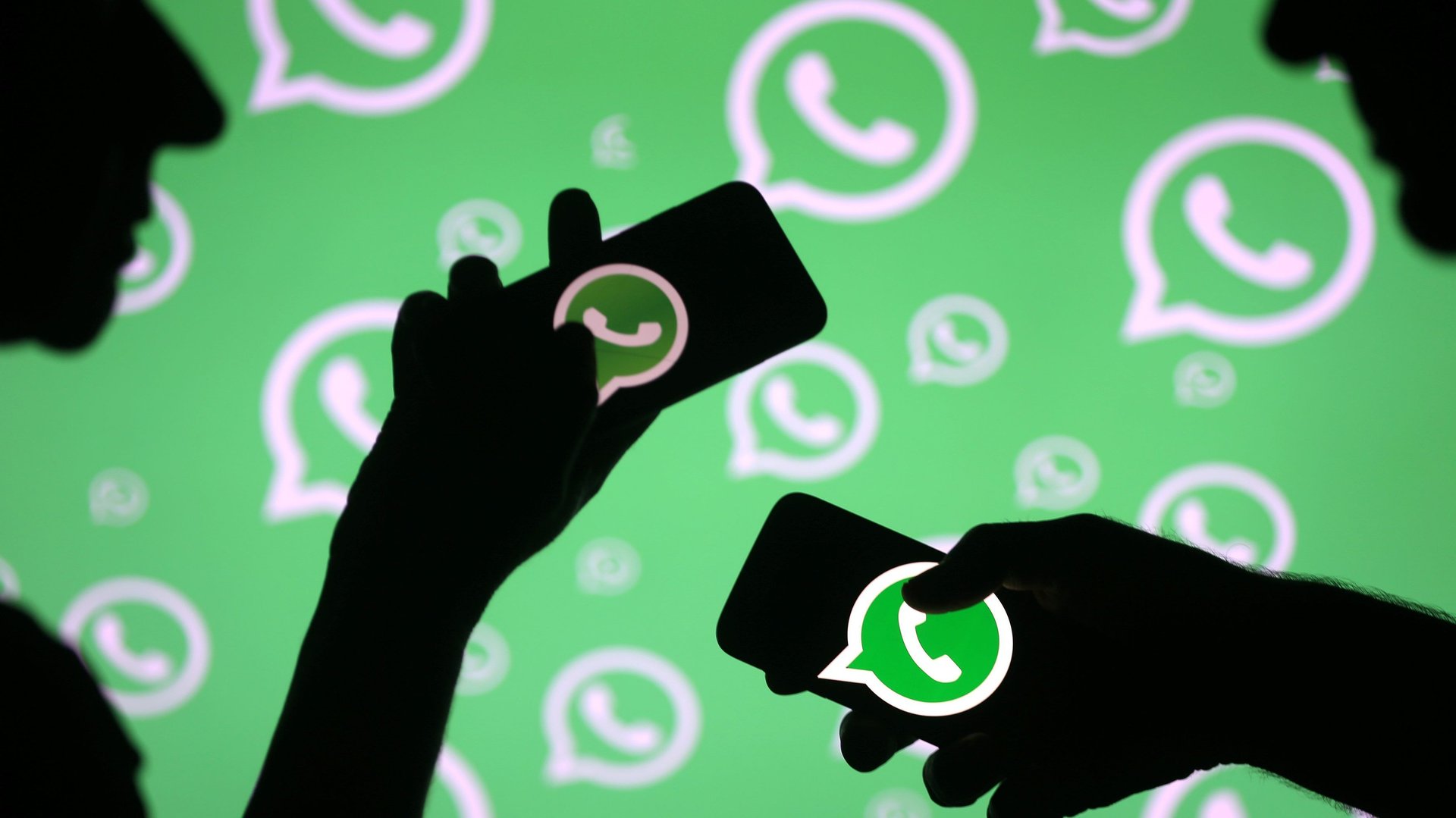Facebook’s payments strategy isn’t Libra, it’s WhatsApp
Judging by the headlines from the last few weeks, you wouldn’t know that Facebook’s payments strategy is moving along just fine. We’re not talking about its cryptocurrency plans, though—we mean WhatsApp Pay.


Judging by the headlines from the last few weeks, you wouldn’t know that Facebook’s payments strategy is moving along just fine. We’re not talking about its cryptocurrency plans, though—we mean WhatsApp Pay.
Much of the last week has been dedicated to the slow crumbling of Libra, Facebook’s crypto project. Before inaugurating its governing council on Monday (Oct. 14), the initiative lost a full one-fourth of its prospective members. PayPal dropped out on Oct. 4, and a week later, the flight began in earnest. Stripe, eBay, Visa, and Mastercard reneged on Libra in quick succession. Then, just as it looked like the bleeding had stopped, the project lost Booking Holdings, the company behind many popular booking websites, and Mercado Pago, the payments division of Argentina’s e-commerce company Mercado Libre.
Despite the departures, the Libra Association met as planned this week in Geneva, Switzerland, and the group elected a five-person board:
- David Marcus – head of Calibra, Facebook’s crypto wallet
- Wences Casares – CEO of Xapo, a bitcoin wallet provider
- Katie Haun – partner at Andreessen Horowitz, a venture capital firm
- Patrick Ellis – general counsel at PayU, a Dutch fintech company
- Matthew Davie – chief strategy officer at Kiva, a lending nonprofit
But while the Libra Association continues to lay the foundation for its crypto plans, it seems to be moving at a snail’s pace. Facebook and its partners have been non-committal on Libra’s fundamentals. For instance, a basic question—like, how much is a Libra worth?—still hasn’t been answered.
The wishy-washy approach has left policymakers flummoxed. It’s hard to say what sort of financial instrument Libra is or how it should be regulated because its own governing council hasn’t made any decisions yet. As a result, the association’s willingness to engage and discuss has translated into fear and uncertainty. Instead of appearing collaborative, their strategy comes off as disorganized.
By the digits
- 7: Companies that dropped out of the Libra Association before its first meeting
- 21: Organizations that signed the Libra Association’s charter on Monday (Oct. 14)
- $10 million: Amount pledged by each member of the Association, granting them one vote in the council
- 1,500: Entities the Libra Association claims are interested in joining the project
- 180: Entities eligible to join so far
As Quartz previously reported, it appears increasingly unlikely that Libra will meet its launch target of 2020. And as predicted, US officials and politicians have begun championing a crypto version of the US dollar as a Libra alternative. (Last year, we explained why a Federal Reserve-issued, blockchain-based US dollar would be ill-advised.)
In spite—or perhaps because of—the deluge of Libra criticism, Facebook CEO Mark Zuckerberg is poised to testify about the cryptocurrency next week before the US House Financial Services Committee. But while his testimony is expected to focus on Libra and provide a defense of the newly-formed association, lawmakers would be wise to delve into Facebook’s more concrete financial plans—in particular, its planned expansion of WhatsApp Pay.
Although Libra feels significant because of its theoretical impact on US monetary policy, the ramifications of WhatsApp Pay are far more realistic—and they would affect users worldwide. The social media giant has already conducted tests of WhatsApp Pay in India for 1 million users in the region. The service makes it possible to send payments to anybody in a user’s contacts list, using the Indian government’s Unified Payments Interface (UPI) to transfer money between bank accounts. For now, Facebook hasn’t taken a cut of transactions. However, it appears the company could eventually use purchase history to serve targeted ads. Facebook plans to start additional tests in Mexico, among other countries. “The hope is to get that rolled out in a lot of places with existing currencies before the end of this year,” Zuckerberg said during a leaked internal meeting from July.
The Jakarta Post reported Oct. 16 that WhatsApp Pay was seeking to launch in Indonesia as well.
Part of the reason WhatsApp Pay has been delayed in India is the government’s concern over data localization, which would require Facebook to store transaction and user data within India. The company would also have to delete that data from foreign servers within 24 hours, according to the Economic Times. If Facebook meets India’s data standards though, it could quickly establish itself as a dominant payments service for its hundreds of millions of users in the country.
So while creating a global currency from scratch has drawn the ire of regulators, Facebook’s financial aspirations are hardly limited to Libra. Whatever happens to the Swiss-based association—or the blockchain enthusiasts who support it—will hardly impact the company’s broader payments strategy. Although peer-to-peer payments in Messenger haven’t really taken off (they were discontinued in France and the UK), Facebook’s ambitions are global and multi-faceted. When Zuck sits down at next Wednesday’s hearing—presumably in a booster seat—the committee should explore all aspects of Facebook’s payments plans, not just the crypto de jour.
BITS AND PIECES
- We sent a man to the moon. We can send the dollar to cyberspace (WSJ)
- Opinion: Facebook’s Libra unravels, and for good reason (MarketWatch)
- Facebook sued over Calibra’s look-alike logo (The Verge)
- Inside Facebook’s Botched Attempt to Start a New Cryptocurrency (WSJ)
- Where it all went wrong for Facebook’s Libra (FT)
- The Libra Association (Fred Wilson, Union Square Ventures)
Please send news, tips, and booster seats to [email protected]. Today’s Private Key was written by Matthew De Silva and edited by Mike Murphy. Don’t attribute to malice what could be done with stupidity.